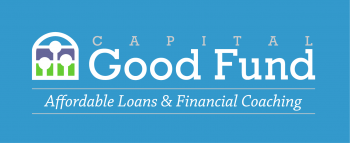9 Personal Loans for Non-U.S. Citizens and How to Get One

Many, or all, of the products featured on this page are from our advertising partners who compensate us when you take certain actions on our website or click to take an action on their website. However, this does not influence our evaluations. Our opinions are our own. Here is a list of our partners and here's how we make money.
Can non-U.S. citizens get personal loans?
9 personal loans for non-U.S. citizens
1. SoFi
- Minimum credit score: None.
- Loan amounts available: $5,000-$100,000.
- Terms available: Two to seven years.
- Eligibility requirements: Applicants can be permanent U.S. residents or non-permanent residents. Permanent U.S. residents must show proof of a Green Card with at least two years of total validity. Non-permanent residents, including DACA recipients and asylum seekers, need to have an E-2, E-3, H-1B, J-1, L-1 or O-1 visa or a Form I-797A or I-797B.
2. LendingClub
- Minimum credit score: 600.
- Loan amounts available: $1,000-$40,000.
- Terms available: Two to six years.
- Eligibility requirements: Applicants must be permanent U.S. residents or visa holders.
3. Upgrade
- Minimum credit score: 580.
- Loan amounts available: $1,000-$50,000.
- Terms available: Two to seven years.
- Eligibility requirements: Applicants must be permanent U.S. residents or visa holders.
4. Universal Credit
- Minimum credit score: 580.
- Loan amounts available: $1,000-$50,000.
- Terms available: Three or five years.
- Eligibility requirements: Applicants must be permanent U.S. residents or visa holders.
5. Rocket Loans
6. Achieve
- Minimum credit score: 640.
- Loan amounts available: $5,000-$50,000.
- Terms available: Two to five years.
- Eligibility requirements: Applicants must be permanent U.S. residents with either a Social Security number or ITIN.
7. Oportun
- Minimum credit score: None.
- Loan amounts available: $300-$10,000.
- Terms available: One to five years.
- Eligibility requirements: Applicants must have either a Social Security number or ITIN.
8. TD Bank
- Minimum credit score: 660.
- Loan amounts available: $2,000-$50,000.
- Terms available: Three to five years.
- Eligibility requirements: Applicants must have a Social Security number or ITIN.
9. Capital Good Fund
- Minimum credit score: None.
- Loan amounts available: $300-$50,000.
- Terms available: 15 months to seven years.
- Eligibility requirements: Applicants must provide a Social Security number or ITIN for most loans.

Applying for a personal loan as a non-U.S. citizen
- Be 18 years or older.
- Show proof of identity with a government-issued ID.
- Provide a U.S.-based address and valid bank account.
- List contact details like a phone number and email address.
- Show proof of income and employment.
Pre-qualifying for a personal loan
Adding a co-signer or co-borrower to your application
Adding collateral to secure the loan
Alternatives to personal loans for non-U.S. citizens
More NerdWallet resources for non-citizens
Article sources
- 1. Consumer Financial Protection Bureau. What Is a Debt Relief Program and How Do I Know if I Should Use One?. Accessed Jan 16, 2025.
- 2. Federal Reserve Bank of St. Louis. Finance Rate on Personal Loans at Commercial Banks, 24 Month Loan. Accessed May 23, 2025.
- 3. Internal Revenue Service. Canceled debt – Is it taxable or not?. Accessed Apr 1, 2025.
- 4. National Credit Union Administration. Credit Union and Bank Rates 2024 Q4. Accessed May 23, 2025.
- 5. Angi.com. How Much Does It Cost to Make My Home Accessible?. Accessed Nov 12, 2024.
- 6. Consumer Financial Protection Bureau. Consumer Use of Buy Now, Pay Later and Other Unsecured Debt. Accessed Jan 27, 2025.
- 7. Internal Revenue Service. Retirement Topics - Plan Loans. Accessed Apr 8, 2025.
- 8. Consumer Financial Protection Bureau. What is a payday loan?. Accessed Apr 4, 2025.
- 9. The Pew Charitable Trusts. Payday Loans Cost 4 Times More in States With Few Consumer Protections. Accessed Apr 4, 2025.
- 10. Federal Reserve. Military Lending Act. Accessed Apr 4, 2025.
- 11. Internal Revenue Service. Retirement topics: Exceptions to tax on early distributions. Accessed Apr 8, 2025.
- 12. Administrative Office of the U.S. Courts. Bankruptcy Basics. Accessed Apr 8, 2025.
Methodology
How we chose the best personal loans
Our team of consumer lending experts follow an objective and robust methodology to rate lenders and pick the best.

35+
Lenders reviewed
We review over 35 lenders, including major banks, top credit unions, leading digital platforms, and high interest installment lenders operating across multiple states.

25+
Categories assessed
Each lender is evaluated across five weighted categories and 27 subcategories, covering affordability, eligibility, consumer experience, flexibility, and application process.

70+
Data points analyzed
Our team tracks and reassesses hundreds of data points annually, including APR ranges, fees, credit requirements, and borrower tools, ensuring up to date, accurate comparisons.
Star rating categories
We evaluate more categories than competitors and carefully weigh how each factor impacts your experience.
NerdWallet’s review process evaluates and rates personal loan products from more than 35 financial technology companies and financial institutions. We collect over 70 data points and cross-check company websites, earnings reports and other public documents to confirm product details. We may also go through a lender’s pre-qualification flow and follow up with company representatives. NerdWallet writers and editors conduct a full fact check and update annually, but also make updates throughout the year as necessary.
Our star ratings award points to lenders that offer consumer-friendly features, including: soft credit checks to pre-qualify, competitive interest rates and no fees, transparency of rates and terms, flexible payment options, fast funding times, accessible customer service, reporting of payments to credit bureaus and financial education. Our ratings award fewer points to lenders with practices that may make a loan difficult to repay on time, such as charging high annual percentage rates (above 36%), underwriting that does not adequately assess consumers’ ability to repay and lack of credit-building help. We also consider regulatory actions filed by agencies like the Consumer Financial Protection Bureau. We weigh these factors based on our assessment of which are the most important to consumers and how meaningfully they impact consumers’ experiences.
NerdWallet does not receive compensation for our star ratings. Read more about our ratings methodologies for personal loans and our editorial guidelines.
More like this








